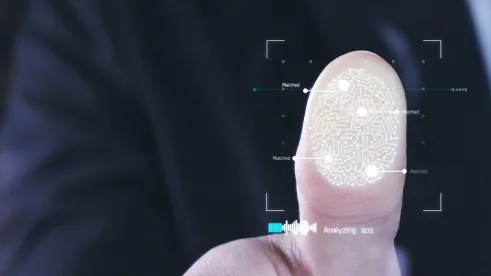CPW has been following the Clearview Illinois Biometric Information Privacy Act (“BIPA”) litigation for quite some time. On Friday, Clearview argued to an Illinois federal judge that an injunction should not be issued precluding the company from collecting data. This included, among other reasons, the argument that Clearview’s business operations are exempt from BIPA and that Clearview’s activities are Constitutionally protected. Read on to learn more.
As you will recall, in In re: Clearview AI, Inc. Consumer Privacy Litigation, Case No. 1:21-cv-00135 (N.D. Ill), Plaintiffs have asked the court to issue the first-ever injunction under BIPA. Given the potential impact this case could have on other app-developers and actors in the space, this litigation is a must-watch.
First, some background for the uninitiated. Clearview collects publicly-available images on the Internet and organizes them into a searchable database, which Clearview’s licensed users can then search by using Clearview’s app. As described in Clearview’s briefing, the only information that Clearview stores from the photos are: (1) the URL from which the photo was collected; (2) any metadata associated with the image itself; and (3) the facial vectors from the faces that appear in the image.
Accordingly, Clearview asserted to the court it cannot determine whether the individuals in the images it collects live in Illinois. Instead, this can be ascertained at best only on an ad-hoc basis based on photo metadata. For this reason, Clearview argued a BIPA injunction would be particularly harmful as the company would likely have to stop using its database outright (without being able to tailor any response on an Illinois-specific basis).
In response to the litigation, Clearview has already implemented changes to its business practices. First, it purportedly cancelled the accounts of every customer who was not either associated with government agencies or their agents or subcontractors. Second, Clearview also implemented an opt-out mechanism for Illinois residents to exclude their photos from Clearview’s search engine. And third, Clearview’s terms of use now require users of the Clearview app to, among other things, agree to use the app only for law enforcement purposes and not to upload photos of Illinois residents.
However, according to Plaintiffs these measures are inadequate as Clearview “cannot be trusted” to maintain these changes. Additionally, in the litigation Plaintiffs have also pointed to Clearview’s 2020 patent application that Plaintiffs contend “describes a much broader use of [Clearview’s] technology.” For these reasons, and others, Plaintiffs requested that the court issue a preliminary injunction enjoining Clearview’s business practices.
In order for the court to rule in favor of Plaintiffs, it must find that: “(1) they have a reasonable likelihood of success on the merits; (2) no adequate remedy at law exists; (3) they will suffer irreparable harm, which, absent injunctive relief, outweighs the irreparable harm [Clearview] will suffer if the injunction is granted; and (4) the requested injunction will not harm the public interest.”
Clearview argued in its most recent briefing that Plaintiffs cannot satisfy this standard. First, Clearview claimed exemption from BIPA. This is because the statute does not apply “a contractor, subcontractor, or agent of a State agency or local unit of government when working for that State agency or local unit of government.” 740 ILCS 14/25(e).
And even if BIPA applied to Clearview (which Clearview argued it does not), Clearview also contended that the record evidence plainly supports Clearview’s other defenses. This includes, among other reasons, that:
(1) BIPA does not apply to conduct outside of Illinois; and
(2) Clearview’s conduct is protected under the First Amendment.
Notably, Illinois state law recognizes a “rule of construction” that a “statute is without extraterritorial effect unless a clear intent in this respect appears from the express provisions of the statute.” Because BIPA lacks such a provision, Clearview argued the statute should not apply here as the “majority of circumstances” giving rise to Plaintiffs’ claims occurred outside of Illinois. Specifically, Clearview is headquartered in New York, Clearview’s servers are located outside of Illinois; and Clearview does not sell its services or app to anyone in Illinois.
Clearview also argued that its conduct is constitutionally protected, as the U.S. Supreme Court has held that the “creation and dissemination of information are speech within the meaning of the First Amendment.”
How the court will rule on these issues (and on Plaintiffs’ requested injunction) remains to be seen. The litigation raises interesting questions concerning the impact of state privacy laws on emerging technologies, in addition to novel constitutional issues. Not to worry, CPW will be there. Stay tuned.




 />i
/>i
